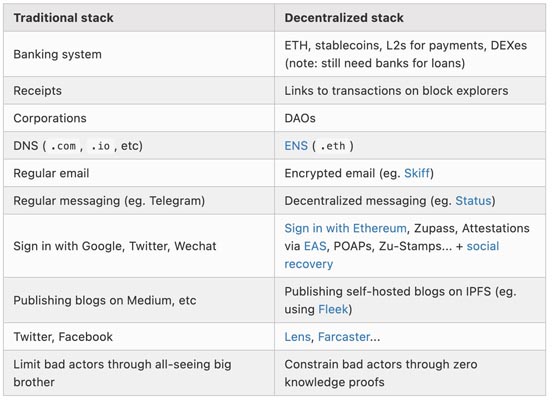
2023 is coming to an end, and Vitalik Buterin, the founder of Ethereum, expressed some emotions. He recently posted continuously in the community. Today, Buterin once again published a long article, stating that Ethereum needs to rekindle the early preset "cryptopunk" concept. He emphasized the importance of "making Ethereum a cryptopunk again."
In order to realize the original vision of Ethereum, Buterin put forward several specific ideas and strategies. He pointed out that the original vision of Ethereum was to build a "public decentralized shared hard drive" through peer-to-peer communication and decentralized archive storage. However, since Ethereum moved towards financialization in 2017, this vision has gradually faded.
Vitalik believes that the future Ethereum should adhere to values such as decentralization, open participation, resistance to censorship, and trustworthy neutrality. He emphasized the development of non-financial applications on blockchain and pointed to the potential of technologies such as Rollups, zero-knowledge proofs, account abstraction and Layer 2 privacy solutions in realizing these values.

Comparison of various levels of Web2 centralized and Web3 decentralized networks
He also emphasized that currently in the encryption ecosystem, there may be some teams working on Build projects that are inconsistent with these values. For example, they may attempt to build a highly centralized network, or choose to store NFTs on a centralized website rather than using a decentralized archive storage platform (such as IPFS).
Faced with these pressures, resistance is indeed a difficult task. However, if we hold back, we risk losing the unique value of the crypto ecosystem and simply duplicating steps that create inefficiencies and redundancies within the existing Web2 ecosystem. Therefore, we should firmly defend the principles and core strengths of the crypto ecosystem to ensure its continued development and innovation.
It is worth mentioning that V God pointed out in the article that in many countries, people do use cryptocurrency for remittances and savings. But this is usually done in a centralized way, including internal transfers through centralized exchange accounts or USDT transactions on the Tron network. This approach goes against the original intention of cryptocurrency decentralization, which is ironic. What’s more, he also posted a photo with Tron founder Justin Sun, with the following text: Tron founder and decentralization pioneer Justin Sun has bravely led the coolest and most decentralized encryption ecosystem in the world.
In fact, V God also questioned Sun Yuchen in the community in early December this year. The thing is, the blockchain media CoinDesk held an interview show sponsored by Tron on the 6th and invited Justin Sun to discuss "responsibility and best practices."
Vitalik left a message under the tweet in response, "Are you sure you want to do it with Justin Sun?" Vitalik believes that after the SBF incident, the industry should learn from it and be more cautious to avoid assisting wealthy individuals. Purchasing legitimacy through wealth, he suggested, could facilitate this practice by giving platforms to prominent figures in such activities.
The above is the detailed content of Ethereum once again embraces the road of decentralization, but V God points directly at Sun Yuchen and Tron. For more information, please follow other related articles on the PHP Chinese website!




